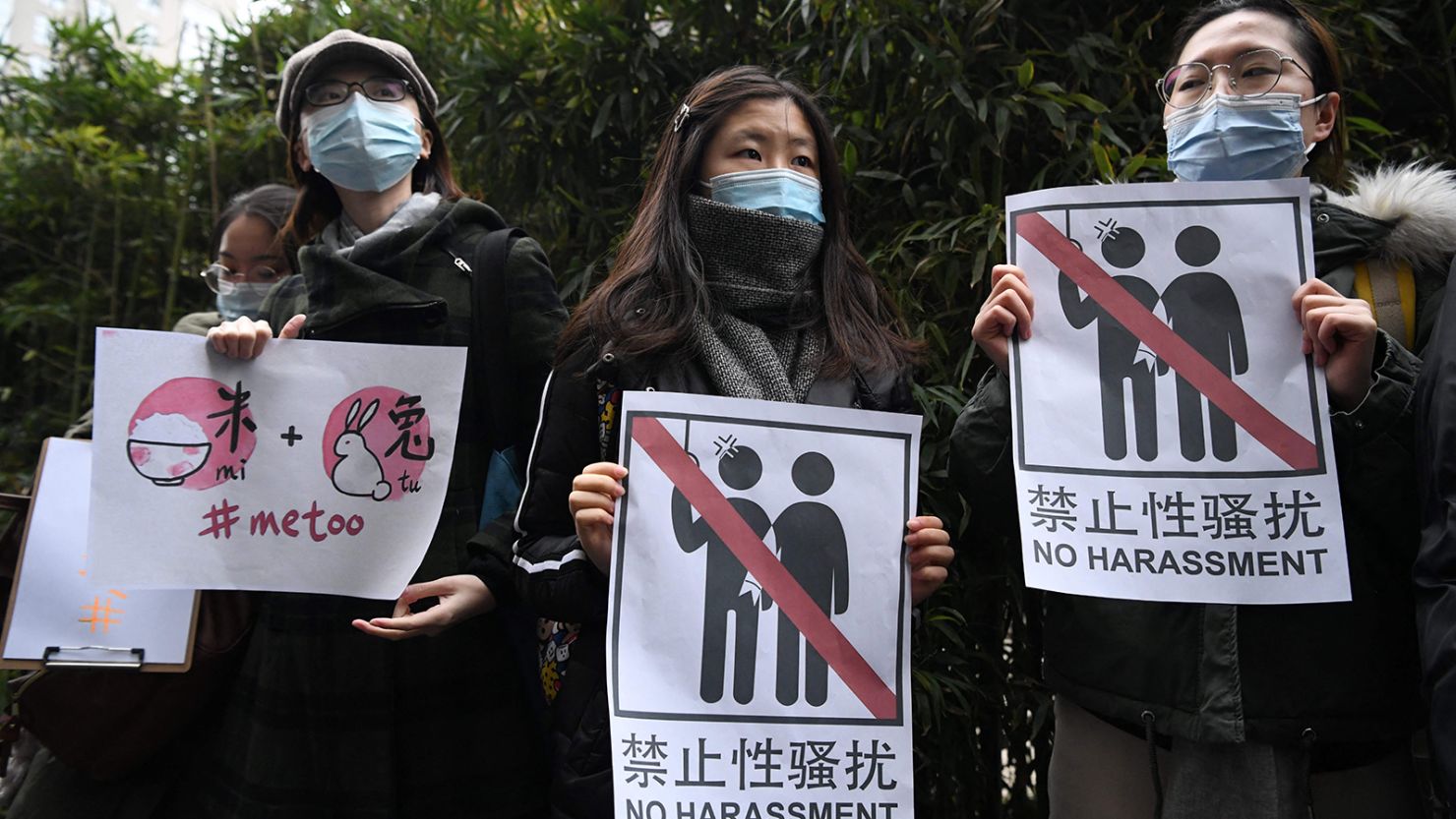A controversial lesson on sexual harassment at a middle school in southern China has stirred online debate about victim-blaming, with many criticizing both the school and what they say is an inadequate response from officials.
The school, located in Zhaoqing city in Guangdong province, had held a “mental health education” class – the equivalent of a sex education class in China – last year, according to Chinese state media People’s Daily.
But photos of the teaching material only began circulating this month, showing papers that said victims of sexual harassment “suffer because they dress flamboyantly and behave flirtatiously.” It added: “Girls shouldn’t wear transparent or skimpy clothes and should avoid frivolous behavior.”
The photos prompted anger and disbelief on social media, with many blaming conservative attitudes they said reflected deep-rooted gender inequality in a patriarchal society.
“The teacher of that class is problematic,” read one top comment on the Chinese social platform Weibo, with 19,000 likes. Others pointed out the dangers of victim-blaming, and the ways women are often targeted regardless of what they wear.
The outrage prompted local education authorities to release a statement last week, confirming that the photos online showed a lecture held at the school last April.
“The lecture contained some inappropriate expressions, which caused misunderstanding among (online users),” the statement said.
It added that the county’s education bureau had “criticized and educated relevant personnel,” and had ordered the school to review its lectures and improve teacher training.
But for some, the official statement also sparked backlash. Many took issue with the statement’s wording of “misunderstanding,” arguing the teaching materials had not been an innocent error but a reflection of real, pervasive beliefs across the country.
“People online didn’t ‘misunderstand,’” one comment read. “The punishment is too mild.”
The school has not yet posted any public statements on its website or social media. CNN has reached out to the school for comment.
A number of incidents over the years have provoked similar controversies, especially in light of China’s #MeToo movement, which has stayed resilient despite frequent setbacks due to censorship and an ongoing crackdown on feminist activism.
For instance, last November a young woman was attacked by a man at a public toilet in Zhejiang, according to state media The Paper. After online critics accused the woman of being “skimpily dressed,” her mother told The Paper: “What does clothing have to do with being beaten? Is that a reason for a crime?”
And in 2021 a controversial ad for makeup removal wipes – which showed a woman being followed down the street at night by a would-be attacker, who runs away in horror after she removes her makeup – was pulled from the internet after strong backlash.





